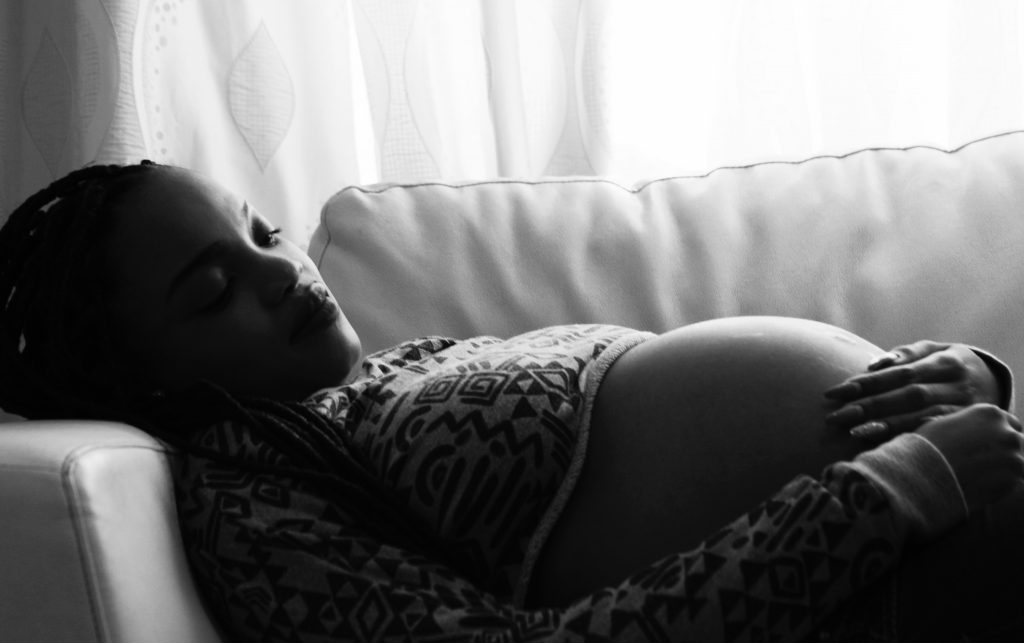Abortion: Public Policy and Catholic Teaching Resources
In a post-Roe world, the NYS Catholic Bishops continue to commit to helping pregnant women and new moms. The Catholic Church is dedicated to helping those in need.
“Often, the Catholic Church is unjustly accused of being more concerned with the baby in the womb than with the mother and child once the infant has been born. As false as this notion is, it is incumbent upon us as shepherds to acknowledge and address that misperception. As far back as the 1980s, the late John Cardinal O’Connor, a giant of the pro-life movement, made a pledge that we reaffirm today: Any woman – regardless of age, religious belief or affiliation, marital status or immigration status – who is pregnant and in need, can come to the Catholic Church and we will give you the services and supports you need to carry your baby to term, regardless of your ability to pay. Furthermore, we will not abandon you and your baby after delivery, but, rather, we will see to it that you have the resources that you and your child both need and deserve. No one will be turned away from life-affirming care. If you have had an abortion that you regret, whether recently or in the distant past, please come to us as well, so that we may offer you services to help you to heal.” – NYS Bishops, Toward a Pro-Life Future in the Empire State
We’ve assembled some helpful tools you can use to educate others about abortion, and encourage them to organize, educate, and spread the pro-life message.
For those who are pregnant or new parents and in need, the Catholic Church is here for you, wherever you live in New York State. Click the ‘Help for Moms‘ button below to find resources in your area. Let us walk with you on your journey.
Resource Links
- Radical Solidarity – a pro-life, pro-woman legislative agenda for New York
- NYS Bishops Statement on the Dobbs Decision
- Toward a Pro-Life Future in the Empire State
- Help for Moms – resources for those who are pregnant or new parents in need of help
- Building a Culture of Life – downloadable flyer for parishes, etc.
- Hope After Abortion – Project Rachel; healing after abortion
- USCCB on Abortion
- Other Pro-Life Organizations

Abortion: Myths and Misconceptions Q&A
Has the overturning of Roe v. Wade made abortion illegal?
No, the decision in the Dobbs v. Jackson Women’s Health Organization case that overturned Roe v. Wade returned the abortion question to the states. It is now up to individual states to decide what, if any, abortion restrictions to implement.
Are women in danger because of abortion bans?
Every single state abortion law contains exceptions that permit abortions either to save the life of the mother or to preserve her physical or general health. There is no reason for a doctor to fear any legal consequences for doing whatever is necessary to treat a mother who has a medical emergency.
Source: Misinformation about Abortion Law After Dobbs, “Stepping Out of the Boat” blog
Do abortion bans restrict care for ectopic pregnancies?
Abortion bans do not restrict or outlaw treatment for ectopic pregnancies. This condition can be fatal for the mother and is always fatal for the embryo. The treatment for an ectopic pregnancy is not the same as an elective abortion and does not conflict with Church teaching. Regardless, such treatment is generally covered by “medical emergency” exceptions in state abortion laws.
Where abortion is illegal, are doctors allowed to care for women who have experienced a miscarriage?
Yes. Miscarriage is distinct from abortion. In a miscarriage, the baby has already died in utero. An abortion is the intentional killing of a baby in the womb. While some of the techniques for miscarriage care are similar to abortion procedures, the similarity ends there.
What happens if prenatal testing reveals serious birth defects or genetic anomalies?
Every human person is a unique gift from God with an inalienable right to life. People with disabilities of all kinds live fulfilling lives full of love and meaning. Disability must never be a rationale for abortion.
Is there ever a time that late-term abortion is necessary to protect a woman’s physical health?
No. Abortion is the intentional killing of an unborn child. This differs from medical emergencies where a mother’s immediate life or health are threatened. In such cases, doctors may deliver the child early. This may unfortunately result in the undesired death of the baby. In such cases, the doctor is treating both the mother and child, doing their best to save both lives. It is never medically safer or necessary to perform a late-term abortion rather than deliver the child.
Source: Dr. Jeffrey Wright via March for Life Instagram Interview
What about abortion in cases of rape and incest?
Rape and incest are unspeakable crimes, which are compounded even more when they result in pregnancy. A woman who is raped has an obvious right to self-defense, which includes defense against conception resulting from the rape. In such cases, medical providers will provide medications including emergency contraception to prevent ovulation, sperm capacitation and fertilization. In addition to offering physical, psychological and spiritual support, Catholic healthcare facilities will dispense emergency contraception medication as part of its compassionate treatment for a rape victim if, after appropriate testing, there is no evidence conception has occurred already. It is always advisable for a woman who has been raped to seek treatment immediately — to prevent pregnancy, to receive trauma services, and for evidence collection.
Despite the heinous and unjust nature of the attack, if pregnancy does result from rape or incest, the Church teaches that the unborn child is a distinct human person with an inalienable right to life. This is a difficult teaching. The Church is committed to providing supports for women in these extraordinarily difficult circumstances, including helping them to place the child for adoption.
Can Catholics support abortion laws that include exceptions for rape and incest?
Abortions that are the result of rape and incest represent a tiny portion of all abortions. Legislation that makes most abortions illegal, but permit them in cases of rape or incest, would on balance save many, many lives. It is permissible to support imperfect legislation if the political reality is such that such an exemption is the only way to enact laws that would limit abortions. Cardinal John O’Connor, who was archbishop of New York from 1984 until 2000, summed up the conditions in which it is permissible to support so-called imperfect legislation in 1990, and it continues to serve as a valuable guideline for Catholics discerning whether or not they support a bill that does not accomplish every goal they seek.
Why do women get abortions?
The most common reasons women have given for terminating an unplanned pregnancy “are lack of financial resources and lack of emotional support” (Women Deserve Better than Abortion, Serrin M. Foster). This indicates that many women would choose life if they felt they had a true choice. For those in need who want to keep their baby, check out our Help for Moms resource page for services available in your area.
Why should the Church impose its religious views on all women?
Although the Catholic Church is pro-life, there are also many secular people who believe in the life and dignity of humans at all stages. While the Catholic Church and other faiths teach that abortion is a sin, biology tells us that an unborn child is a distinct human being separate from the mother. The views of people who oppose abortion aren’t solely based on religion, but on human rights and biological fact.
Is it true that people who say that they’re pro-life only care about the baby in the womb, and not about the mom and baby after birth?
The Catholic Church is committed to every person from womb to tomb. Every human life is sacred, and the dignity of the human person is the foundation of a moral vision for society (Life and Dignity of the Human Person, USCCB). Read the NYS Bishops statement “Toward a Pro-Life Future in the Empire State” about our commitment to pregnant women and new parents in need, here.
If I had an abortion, am I going to hell?
While the Catholic Church is pro-life, and abortion is a serious sin, forgiveness, hope and healing are available. If you are Catholic and had an abortion, you can be reconciled to the Church by going to confession. For many women who have had abortions, there is a grieving process. Project Rachel is a ministry available for those who have been involved in abortion and is open to people of all faiths and no faith.
Source: Project Rachel Ministry, USCCB
What alternatives are available for women who are in crisis pregnancies?
Adoption is a beautiful gift that mothers can give both to their babies and to would-be parents desperately seeking a child to raise and love. Alternatively, if a woman wishes to keep her baby, the Church stands ready to Walk with Moms in need. If you are pregnant, whether you choose adoption or to keep your baby, you can find resources through our Help for Moms webpage and through your local parish, diocese, or Catholic Charities programs.
A Discussion on the Overturning of Roe v. Wade with Alexis Carra-Tracey
Alexis Carra-Tracey, attorney for the Archdiocese of New York joins Current News to discuss the Supreme Court overturning Roe v. Wade and the legalities of the ruling.
A Discussion on Alternatives to Abortion with Cheryl Calire
In episode 17 of the Capitol Compass Podcast, Gillian chats with Cheryl Calire, executive director of pro-life ministries for the Diocese of Buffalo. We discuss alternatives to abortion and the Mother Teresa Home in Buffalo’s East Side.
